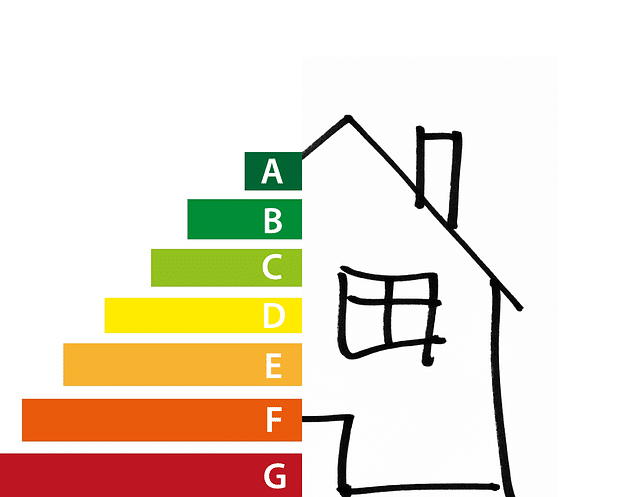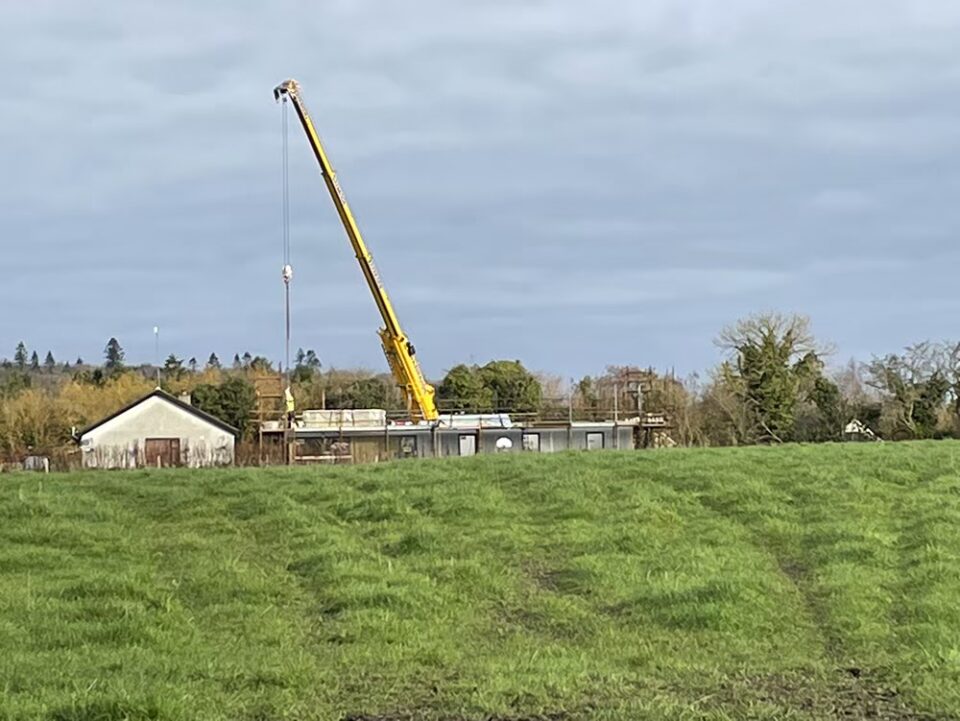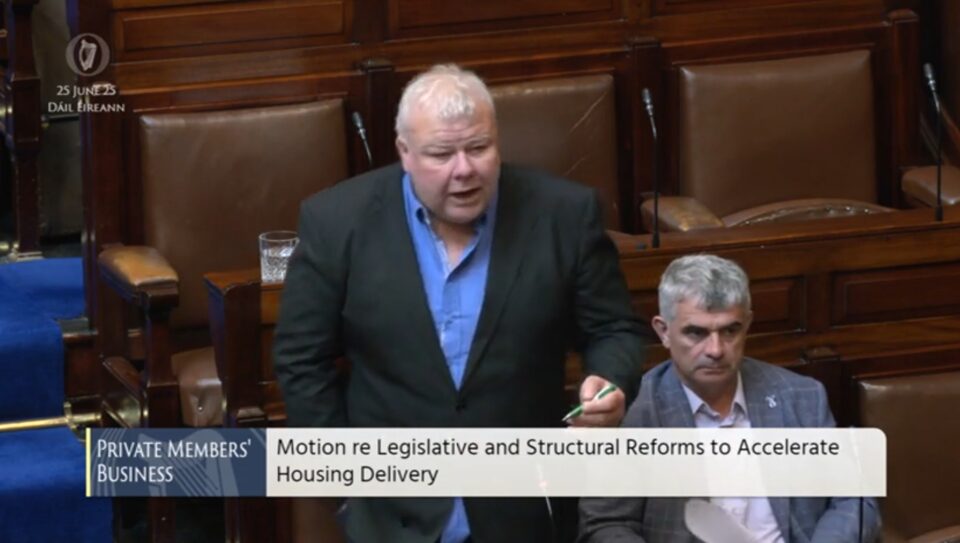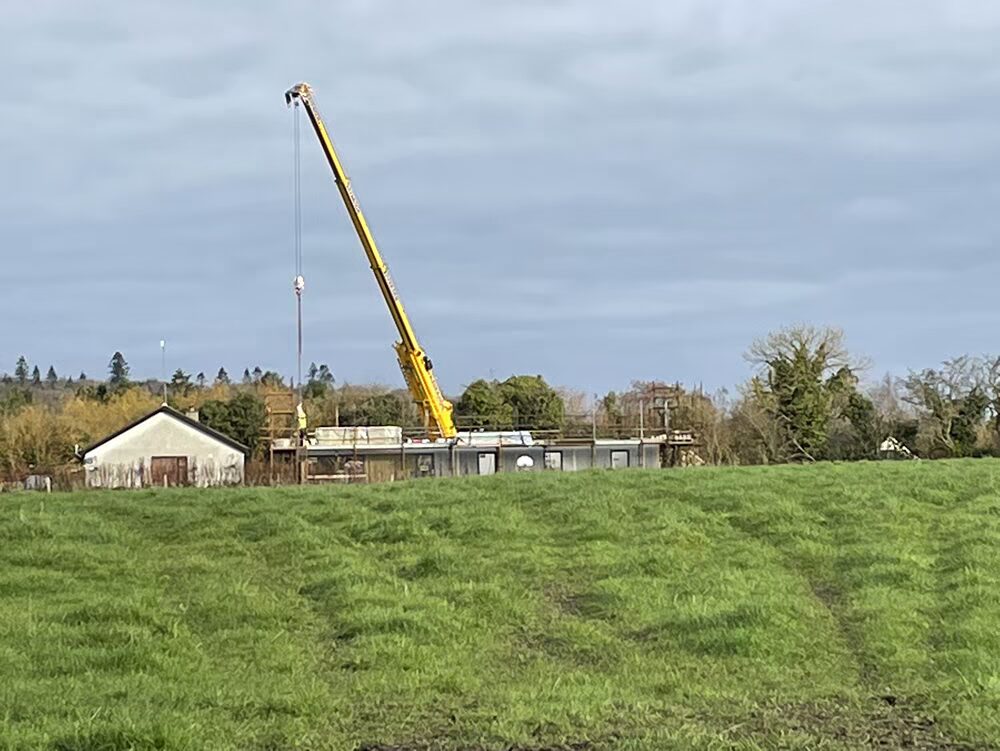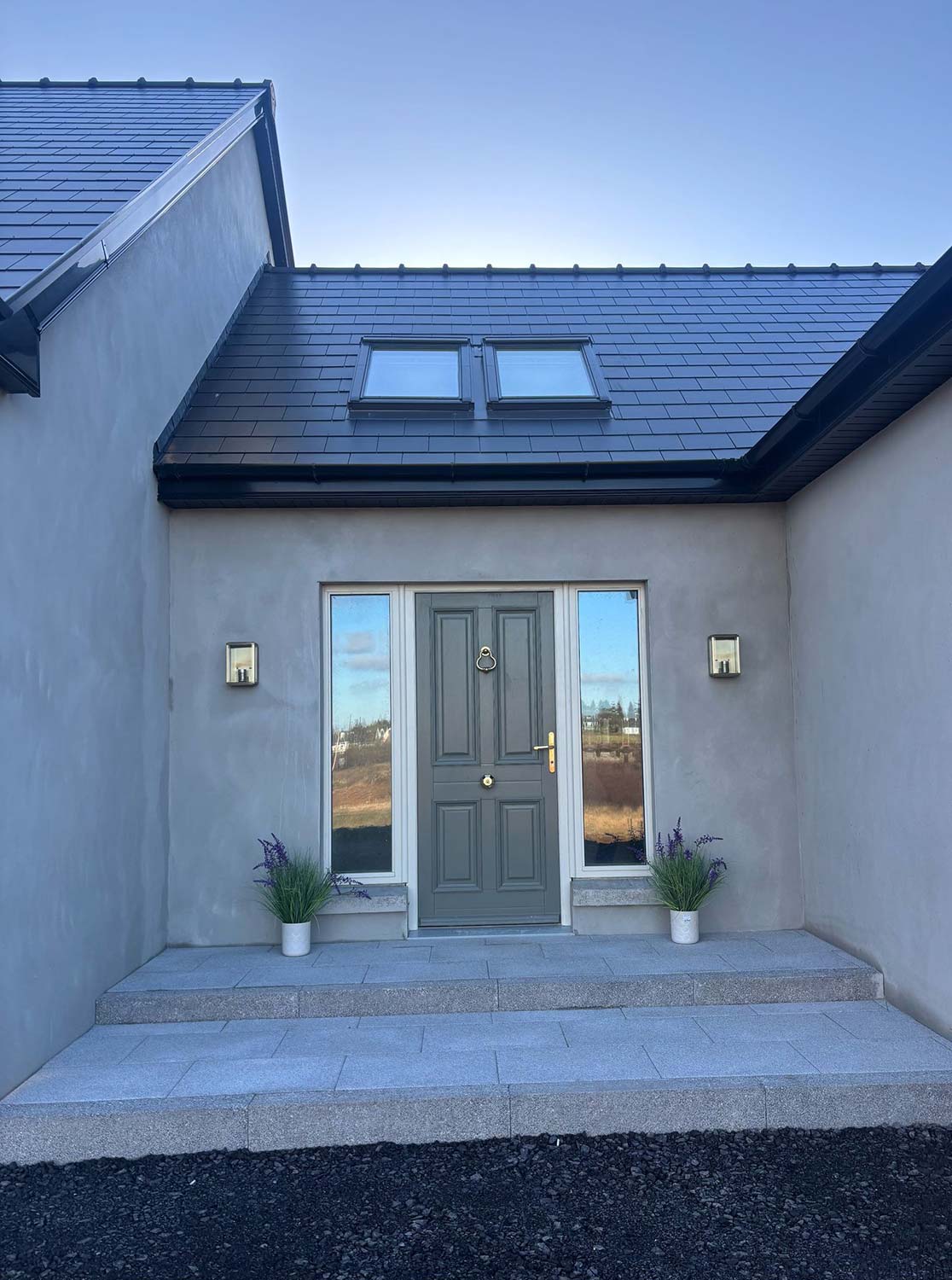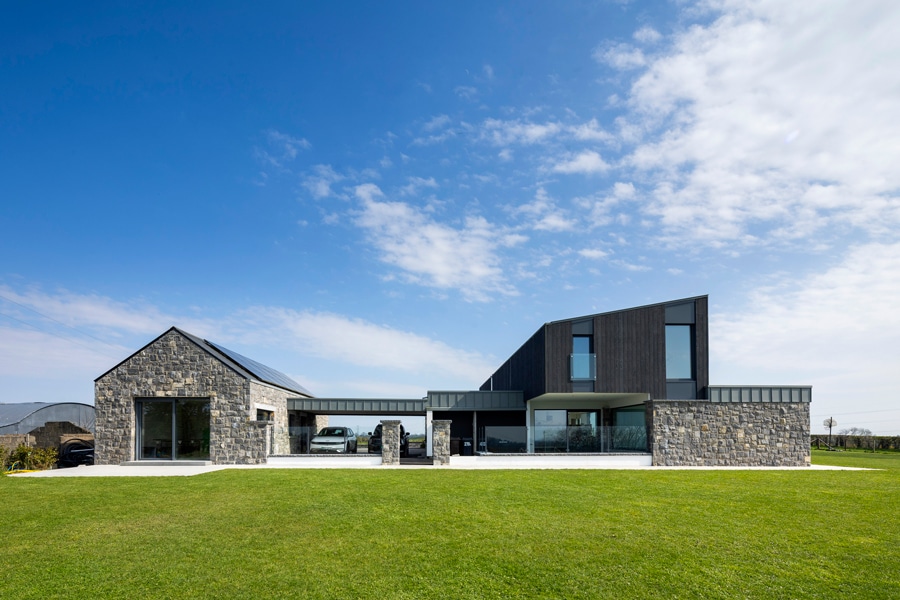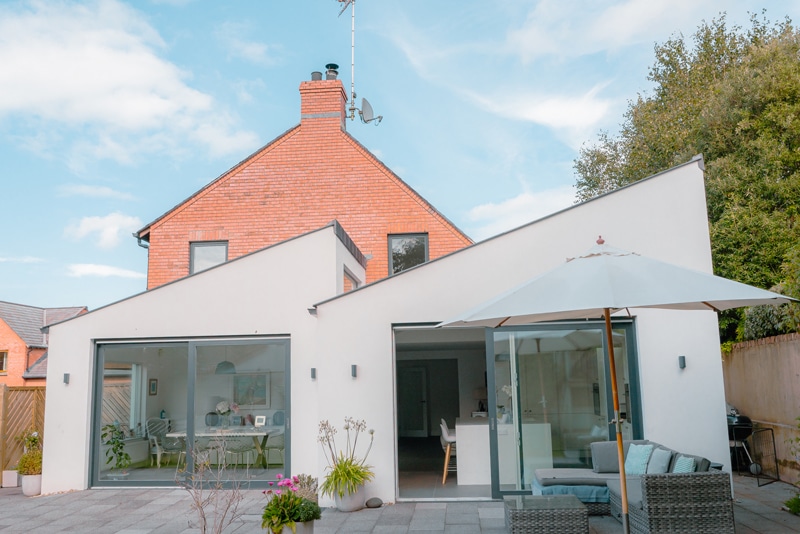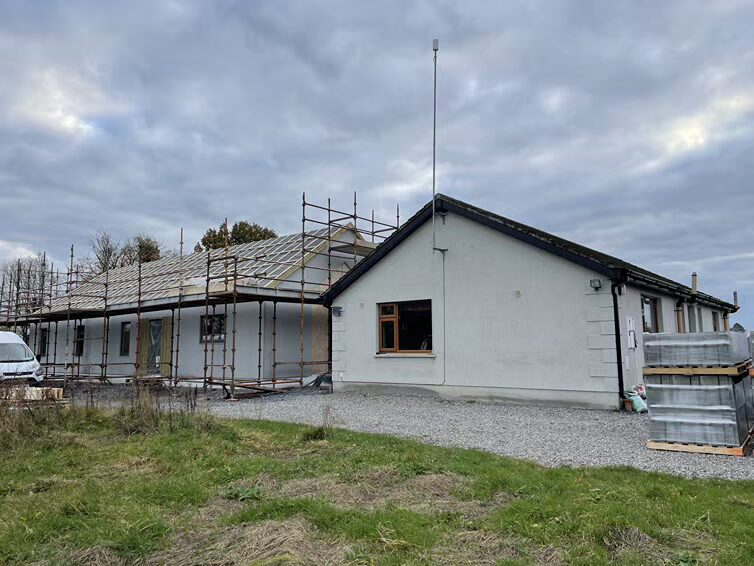In this article we cover:
- What the draft plan is
- Why it could spell disaster for building in the countryside
- Comments from TDs and the Irish Farmers Association
- How Transport Infrastructure Ireland (TII) currently stops development in the countryside
The proposed transport plan by the Department of Transport, aiming to reduce emissions, has sparked criticism from rural advocates and TDs alike.
The draft document, titled Moving Together: A Strategic Approach to Improved Efficiency of the Transport System in Ireland, prioritises ‘brownfield’ developments over ‘greenfield’ developments for housing, which has drawn criticism for its perceived discrimination against rural communities.
The plan is aimed at cutting car usage.
The draft plan, whose public consultation is open until the end of July 2024, proposes the “focused application” of a “taxation measure” that would “underpin national planning policies and objectives relating to provision of 30 per cent to 50 per cent of new homes within and close to the existing footprint of built-up areas as set out in the National Planning Framework.”
In other words, a tax would apply to those who want to build in the countryside.
Taxes to build rural home “disgraceful”
The Irish Farmers Association has strongly criticised the plan also labelling some of the measures as “unacceptable.” According to IFA National Farm Family & Social Affairs Chair Teresa Roche, these plans are “completely unfair” and would add further financial pressures on rural dwellers, limiting their ability to choose where to live.
Bill O’Keeffe, IFA National Farm Business Chair, stressed the importance of allowing individuals to live in rural areas without facing penalties, particularly for farmers who rely on living on their farms for efficiency and sustainability.
According to agriland.ie the Rural Independent Group of TDs stated the draft document “imposes another penalty on the rural way of life, affecting those living in rural areas and Irish farming, which is completely unacceptable and deeply unfair.”
Independent Tipperary TD Mattie McGrath, added, “Not only would these plans impose additional financial burdens on all residents, but they would also drastically reduce the opportunity for rural planning permissions to build individual homes, pushing almost all new homes into towns, cities and their surrounding areas.”
He claimed that the draft document indicates an “agenda” to discourage people from building homes in rural areas. “Aggressively taxing someone to discourage them from building a rural home or living in rural housing is disgraceful and, if implemented, will devastate rural Ireland,” added McGrath.
Current planning restrictions
Planning restrictions are in place on national routes, particularly for one-off housing in rural areas. The issue has to do with land access from national routes.
Councillor Joe Carroll described it as “a real killer for one-off housing in rural Ireland”. He expressed frustration over the increasing difficulty in obtaining planning permission for properties requiring access to national routes, citing cases where applicants were denied access, even via existing entrances.
A motion was passed urging TII to review its planning policy, with councillors emphasising the importance of engineering assessments and local planning authority judgment in such cases.
Compact rural settlements
With its emphasis on compact settlements, taxation measures and zoning regulations, the proposed Transport plan may present challenges for individuals seeking to build one-off housing, particularly in terms of cost, location and regulatory compliance.
Here are some key points:
Compact settlements and sustainable transport: The plan highlights the importance of compact settlements for sustainable transport options. This suggests a preference for developments that are densely populated and well-connected, rather than dispersed one-off housing.
Taxation measures: The document mentions the use of taxation measures to influence land use, with a focus on incentivising brownfield development over greenfield development. This could potentially make it more costly or less attractive to develop one-off housing in rural areas.
Development contributions and land value sharing: There are discussions about the use of development contributions and land value sharing to fund infrastructure for housing developments. This could impact the cost and feasibility of one-off housing projects, especially if they are not within existing built-up areas.
Residential Zoned Land Tax: The introduction of a Residential Zoned Land Tax aims to prompt residential development on serviced land. While this may encourage development in designated areas, it could also add financial considerations for individuals seeking to build one-off housing outside of these zones.
Rural Housing Guidelines: Updated Rural Housing Guidelines are being prepared to ensure sustainable management of housing in rural areas. While these guidelines aim to support rural housing, they may also introduce regulatory requirements that could affect the development of one-off housing.
Share your views on the draft transport plan: Moving Together A Strategic Approach to the Improved Efficiency of the Transport System in Ireland. Your feedback will shape its final version. Take part in the consultation here. It’s open until the end of July 2024.





